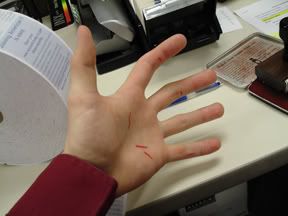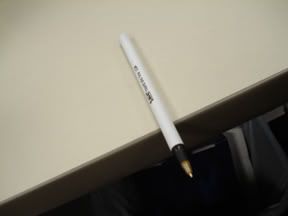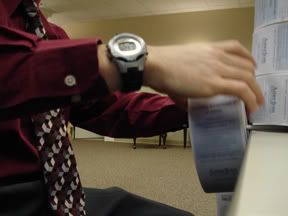
Ask any service club, bowling league, church social committee, or Greek organization what their number one problem is, and chances are they'll all answer the same:
Membership.
Declining numbers in organized activities is a serious crisis in areas as diverse as the civic square to the college campus. Fewer people are joining, and many groups face extinction is they don't increase their membership numbers.
My own Rotary club, and Rotary in general, has dealt with fewer members for years. In a weird twist of the phenomenon, the number of Rotary clubs is increasing, while the membership of each club is decreasing, by as much as 20 percent. Our breakfast club used to have as many as 45 members. Today, we can barely keep 30 coming to meetings.
Robert Putnam, in his book "Bowling Alone," helps to answer the "why" question, as well as the "how much." According to Putnam, the decline in inolvement in civic groups, politics, church attendence, family dinners, participatory sports clubs - in other words, everything that makes America what it is - is an epidemic that has been taking place since the 1960s. Group after group, study after study, survey after survey shows Americans participated in life as we know it in record numbers after World War II.
And then something happened. It all went away.
What's to blame? Putnam says it's several things: commuting, urban sprawl, women entering the work force, generational differences, and - probably most of all - television.
All this disengagement has come at a price. Studies show that people who are rich in "social capital" (those bonds that tie families, towns, neighborhoods, and groups together) live better, happier, healthier, safer lives. If you're a homebody, you're twice as likely to be depressed. On the other hand, if you're active in your community, you reduce your chances of having a serious medical issue.
A lot of this might seem like common sense. After all, if you're well connected in the community, or even if you have a big family, you increase your chances of getting a ride to the hospital if you need one.
But what Putnam shows that, to me, is so remarkable is why all this is going on. The "Greatest Generation" were a hearty, active bunch. Their kids? Less so. THEIR kids? Even less so, and so on. That's the generational difference (even though Putnam never says exactly why Baby Boomers are less active than their parents).
With the invention of TV and electronic entertainment, Americans are more likely to sit at home, alone, in front of a glowing box than they are to invite friends over, go to a city hall meeting, or attend a church social.
And because we're spending more time in our car, traveling to work and across town to the strip mall, we have less time to devote to the public good.
Putnam shows the steady decline in involvement since the '60s, despite all that's happened historically in the meantime, but I can't help wonder about 9/11's effect on the country. For instance, other things being equal, Putnam shows our generation is more likely to volunteer. Did 9/11 do anything to increase that further? And we all heard stories about how church attendence grew after the attacks, but how has it fared since then?
Also, Putnam can only hint at the Internet's involvement in our gradual disengagement. The Web was pretty new when he wrote "Bowling Alone," and - like TV - it may take awhile to study the long-term effects of AIM, eBay, and Amazon.com.
I've been reading a lot about these "The Sky is Falling" scenarios lately - the financial crisis, Peak Oil, global warming, the rise of polarized political voices - and it really makes me wonder what this country is going to look like when my kids are my age. If America is all about a participatory democracy, what happens when we stop participating?
The image of an America where everyone is locked inside their home, afraid to go out and play, cynical and suspicious of their neighbors is a frightening one. And all we can really do is do our little part to make sure we're active in the social sphere, whether it's family or church or work or whatever.
To sit in front of the TV is no way to live individually, let alone as an entire country.
As KMFDM would say - "Turn off your MTV and live."
[a big thanks to Cassandra for letting me borrow the book!]











